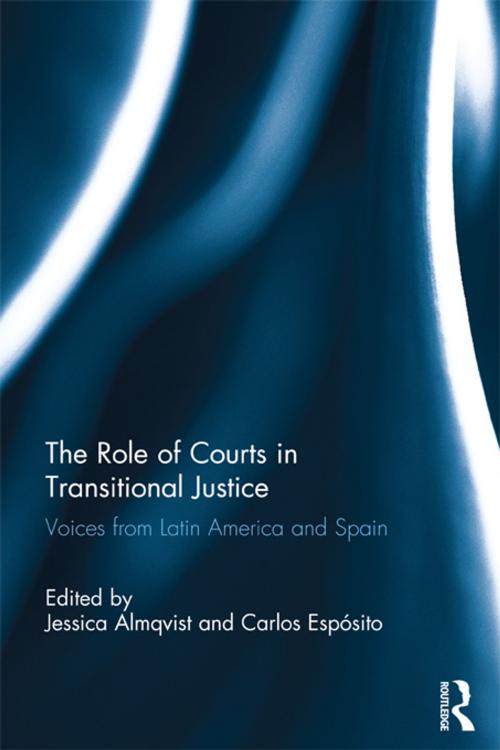The Role of Courts in Transitional Justice
Voices from Latin America and Spain
Nonfiction, Reference & Language, Law, International, Criminal law| Author: | ISBN: | 9781136579257 | |
| Publisher: | Taylor and Francis | Publication: | June 17, 2013 |
| Imprint: | Routledge | Language: | English |
| Author: | |
| ISBN: | 9781136579257 |
| Publisher: | Taylor and Francis |
| Publication: | June 17, 2013 |
| Imprint: | Routledge |
| Language: | English |
Bringing together a group of outstanding judges, scholars and experts with first-hand experience in the field of transitional justice in Latin America and Spain, this book offers an insider’s perspective on the enhanced role of courts in prosecuting serious human rights violations and grave crimes, such as genocide and war crimes, committed in the context of a prior repressive regime or current conflict. The book also draws attention to the ways in which regional and international courts have come to contribute to the initiation of national judicial processes. All the contributions evince that the duty to investigate and prosecute grave crimes can no longer simply be brushed to the side in societies undergoing transitions.
The Role of Courts in Transitional Justice is essential reading for practitioners, policy-makers and scholars engaged in the transitional justice processes or interested in judicial and legal perspectives on the role of courts, obstacles faced, and how they may be overcome. It is unique in its ambition to offer a comprehensive and systematic account of the Latin American and Spanish experience and in bringing the insights of renowned judges and experts in the field to the forefront of the discussion.
Bringing together a group of outstanding judges, scholars and experts with first-hand experience in the field of transitional justice in Latin America and Spain, this book offers an insider’s perspective on the enhanced role of courts in prosecuting serious human rights violations and grave crimes, such as genocide and war crimes, committed in the context of a prior repressive regime or current conflict. The book also draws attention to the ways in which regional and international courts have come to contribute to the initiation of national judicial processes. All the contributions evince that the duty to investigate and prosecute grave crimes can no longer simply be brushed to the side in societies undergoing transitions.
The Role of Courts in Transitional Justice is essential reading for practitioners, policy-makers and scholars engaged in the transitional justice processes or interested in judicial and legal perspectives on the role of courts, obstacles faced, and how they may be overcome. It is unique in its ambition to offer a comprehensive and systematic account of the Latin American and Spanish experience and in bringing the insights of renowned judges and experts in the field to the forefront of the discussion.















